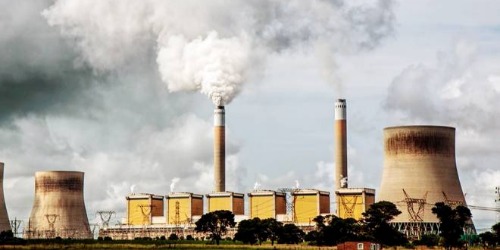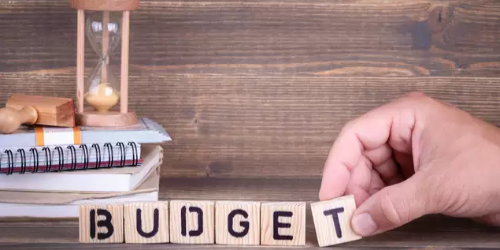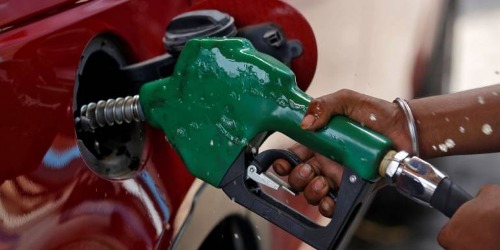India set to become world's No.2 oil importer surpassing China by mid-2020

India's oil demand growth is set to overtake China by mid-2020s, priming the country for more refinery investment but making it more vulnerable to supply disruption in the Middle East, the International Energy Agency (IEA) said on Friday.
India's oil demand is expected to reach 6 million barrels per day (bpd) by 2024 from 4.4 million bpd in 2017, but its domestic production is expected to rise only marginally, making the country more reliant on crude imports and more vulnerable to supply disruption in the Middle East, the agency said.
China's demand growth is likely to be slightly lower than that of India by the mid-2020s, as per IEA's China estimates given in November, but the gap would slowly become bigger thereafter.
"Indian economy is and will become even more exposed to risks of supply disruptions, geopolitical uncertainties and the volatility of oil prices," the IEA said in a report on India's energy policies.
Brent crude prices topped $70 a barrel on rising geopolitical tensions in the Middle East, putting pressure on emerging markets such as India. Like the rest of Asia, India is highly dependent on Middle East oil supplies with Iraq being its largest crude supplier.
India, which ranks No. 3 in terms of global oil consumption after China and the United States, ships in over 80% of its oil needs, of which 65% is from the Middle East through the Strait of Hormuz, the IEA said.
The IEA, which coordinates release of strategic petroleum reserves (SPR) among developed countries in times of emergency, said it is important for India to expand its reserves.
India is the world's fourth largest oil refiner and a net exporter of refined fuel, mainly gasoline and diesel.
India has drawn plans to lift its refining capacity to about 8 million bpd by 2025 from the current about 5 million bpd.
The IEA, however, forecasts India's refining capacity to rise to 5.7 million bpd by 2024.
This would make "India a very attractive market for refinery investment," IEA said.
Drawn to India's higher fuel demand potential, global oil majors like Saudi Aramco, BP, Abu Dhabi National Oil Co and Total are looking at investing in India's oil sector.
Saudi Aramco and ADNOC aim to own a 50% stake in a planned 1.2-million bpd refinery in western Maharashtra state, for which land is yet to be acquired.
- 0
- Leave a comment
Delhi air pollution: Power ministry seeks new deadline for coal-fired plants to install emission equipment

India's federal power ministry has proposed a new deadline for coal-fired power plants around New Delhi to instal equipment to reduce emissions, a government official said on Friday.
If the proposal is accepted, it would pose a further challenge to authorities in India's capital New Delhi grappling with pollution that can cause lung disease and blights air quality.
The ministry has said that the power plants be given deadlines starting July 2020 and ending December 2021 to install the equipment, the government official, who did not want to be named, told Reuters.
The last deadline for installing such equipment ended on December 31, 2019, with just one out of the 11 utilities in the national capital region having installed the equipment.
The utilities could not meet the emissions standards of December 2017, which was then extended by another 2 years.
The environment ministry will take the final call on the power ministry's proposal.
On Dec. 30 Reuters citing documents reported Indian Prime Minister Narendra Modi's office has proposed waiving a tax on coal to help finance pollution-curbing equipment.
The official said that the finance ministry is considering waiving about $6 per ton of carbon tax on coal.
Budget 2020: Govt needs to fine-tune direct taxes to spur growth, reverse economic downturn

The International Monetary Fund (IMF) stated that India is in the midst of a significant economic slowdown and has asked for urgent steps to reverse the downturn while continuing with credible fiscal consolidation.
The growth rate is plummeting in India, it was 8% a short while ago and now it is below 5% in the most recent quarter, which is depressing and worrying.
With this background, the budget becomes all the more important for the Indian economy and the general public which would pave the way for future development in the economy. Let us see some of the budget changes that the government may consider implementing.
In the Union Budget 2019, Finance Minister Nirmala Sitharaman pushed across an additional deduction of Rs 1.5 lakh on the interest paid for home loan taken for residential house property during the period between April 1, 2019, to March 31, 2020, with stamp valuation of the property not exceeding Rs 45 lakh. It is "difficult" to purchase a house in a Tier 1 city at such "relatively low threshold" and thereby benefit has accrued only in Tier 2 and Tier 3 cities.
Budget 2020 may look at extending this benefit to loans taken till March 2021 and the new threshold shall be placed at Rs 65 lakh or more for metro cities. This will give a further push to unsold inventory with the real estate sector.
In the current environment, the sole agenda of the Centre should be growth, even if it comes at the cost of fiscal deficit. Income tax cuts for corporates were targeted at infusing higher private investments in the country, which may take time to shape up.
On the contrary income tax cuts for individual taxpayers shall drive an increase in disposable incomes and discretionary spend.
This would also propel small businesses to expand further generating employment at the grass-root level. Income tax cuts for individuals and access to funds at a lower cost will provide a level playing field to these businesses that reflect the true spirit of Indian entrepreneurship.
Implementation of the new income tax slab rates suggested by the task force constituted on new Direct Tax legislation would put more money in the hands of the people. Tax on MSME firms working as partnerships is suggested to be brought down to 25%. Reforms in areas like land and labour need to be hastened.
The government must set up a dedicated fund of Rs 25,000 crore or more with no collateral being asked from the MSMEs on the lines of fund for stalled housing projects. This would address the liquidity crunch faced by the MSMEs in a big way.
The Pension Fund Regulatory and Development Authority has recently allowed NPS schemes to invest in corporate bonds/securities which have a minimum of 'A' rating or equivalent.
National trade bodies have suggested that NPS schemes should be allowed to invest in corporate bonds/securities which have a rating of BBB," and would further allow the access of funds to corporate India. Corporates may see the acceptance of this norm by the Government of India.
Commodities Transaction Tax should be allowed as a non- refundable tax paid upfront or as a rebate instead of an expense, this will help in increasing the volumes and liquidity on Indian exchanges. The government may see this demand on the principle of equity and justice.
Entities engaged in real estate business are bleeding doubly, first, the flat buyers are not paying the monthly installments and then such businesses are also required to pay income tax on the notional income. All such real estate entities should be exempted from the burden of tax on the notional income and taxability shall be shifted to at the time of the receipt of money.
The presumptive tax turnover limit should be increased to Rs. 5 crore for businesses and to Rs 1 crore for professionals. This will help conserve the resources of a taxpayer and promote ease of doing business.
The government policy with reference to direct taxes in the medium term is to phase out tax incentives, deductions, and exemptions while simultaneously rationalising the rate of taxes.
The central government should focus on making tax policies around environment-friendly businesses like sustainable construction materials, organic products, waste recycling, wind power generation, solar power generation and sanitation management etc.
Providing additional benefits to home buyers would also help the Centre achieve its ambitious target of housing for all by 2022.
The central government may also look at further incentivising digital payments and restricting the use of cash for business payments to help unearth the domestic black money menace.
Iran-US conflict: DGCA asks Indian airlines to avoid Iranian airspace, remain vigilant

Iran-US tensions: Aviation regulator, Directorate General of Civil Aviation (DGCA), on Wednesday asked Indian airlines to steer clear of the Iranian airspace amid the country's escalating tensions with US. The DGCA asked Indian airlines to remain vigilant and take all necessary precautions in airspace over Iran, Iraq, Gulf of Oman and waters of Persian Gulf. The advisory came after a Ukrainian plane carrying 176 people crashed near Tehran.
The DGCA called a meeting and said that the airlines were "sensitised", according to a senior official of the regulator.
Air India has decided to reroute its flights that use the Iranian airspace. "In light of the tensions within the Iranian airspace a decision to temporarily reroute flights of Air India (AI) and Air India Express (AIX) overflying Iran has been taken. This may lead to increase in flying time by approximately 20 minutes for flights from Delhi and 30 to 40 minutes for flights from Mumbai," it said.
Additionally, the Indian government has issued a travel advisory asking Indian citizens to avoid non-essential travel to Iraq. "In view of the prevailing situation in Iraq, Indian nationals are advised to avoid all non-essential travel to Iraq until further notification," the advisory by the Ministry of External Affairs said. It said Indian nationals residing in Iraq are advised to be alert and may avoid travel within Iraq.
US Federal Aviation Administration has also asked all American airlines to stop operating in the Iranian airspace as well as over Iraq, water of the Persian Gulf and Gulf of Oman.
The situation in the Middle East region is tense because of Iran's missile strikes against two US military bases in Iraq on Wednesday. The strikes were in retaliation of US' airstrike at the Baghdad airport that killed top Iranian commander General Qassem Soleimani on January 3.
An Ukrainian flight to Kiev crashed on Wednesday killing everyone onboard. Qassem Biniaz, spokesperson for Iran's Road and Transportation Authority, said one of the engines of Boeing 737 aircraft, which had 167 passengers and nine crew members, of the Ukranian International airlines was struck by fire immediately after the take off, causing the plane to crash.
Petrol, diesel prices likely to rise as brent crude price crosses $70 mark

After a gap of six successive days of the hike, petrol & diesel prices were left unchanged on Wednesday for the first time this year. Although, petrol and diesel prices are set for a hike in the near future following a surge in crude oil rates amid fresh escalating geopolitical tensions between the US and Iran.
The prices of fuel in the country are dependent on the global crude prices and the rupee-US dollar exchange rate. As India imports 84% of its crude requirements, escalating conflict in the Middle East region could disrupt global oil supplies and lead to an increase in petrol and diesel prices locally.
According to the Indian Oil website, the petrol prices stood at Rs 75.74 per litre in Delhi, Rs 81.33 per litre in Mumbai, Rs 78.33 per litre in Kolkata, and Rs 78.69 per litre in Chennai, unchanged against Tuesday's rates.
Similarly, the diesel prices remained unchanged at Rs 68.79, Rs 72.14, Rs 71.15, and Rs 72.69 per litre in Delhi, Mumbai, Kolkata, and Chennai.
On Wednesday, crude prices skyrocketed in the international oil market and touched $71.75 per barrel after Iran attacked American forces in Iraq in response to a US strike that killed an Iranian general last week, raising the spectre of a spiralling conflict and disrupted oil supplies.
Tensions arising from the Middle East can possibly disrupt the global supply chain and are likely to support crude prices. Oil prices have jumped more than 5% in the last week since the American airstrike on Iran.


